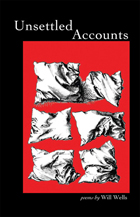


In 1919, C. Burton and Hattie S. Cosgrove bought land in Grant Country, New Mexico, and began excavating ruins containing Classic Mimbres (ca. A.D. 1000-1150) ceramics. The self-trained archaeologists took great care in uncovering and recording their findings. They so impressed A.V. Kidder of the Peabody Museum when he visited the site he invited them to manage a museum expedition to the Swarts Ruin.
Long out of print, this classic volume is the Cosgrove's report of their Mimbres Valley Expedition seasons of 1924 to 1927. The excavation recorded nearly 10,000 artifacts, including an extraordinary assemblage of Mimbres ceramics. Hattie Cosgrove's meticulous line drawings of over 700 individual Swarts Ruin pots have long been an invaluable design catalog for contemporary Native American artists and serve as a rich resource for designers seeking Southwest inspiration in their work.
This clothbound facsimile edition of the original 1932 publication will be an essential to the libraries of all scholars, artists, and admirers of Native American art and archaeology.

To take the mess of life and make meaning from it is what all poets seek to do. For Will Wells, recipient of the thirteenth annual Hollis Summers Poetry Prize, this includes reaching across centuries and continents, into the minds and hearts of disparate individuals—Albert Einstein, Andrea Yates, the traveler from Porlock, Dante, or Holocaust survivors, including his own grandmother—to extract the personal value embedded there for him.
By turns funny, shocking, gentle, and musing, the poems of Unsettled Accounts reflect Will Wells’s constant attention to his environment and to his past—and to our environment and our past—and his persistent effort to keep them real and whole by turning them into art.
Ping-Pong with the Nazis
Bored couriers have kicked off boots and set
their pipes aside, a Dutch interior.
The slapped ball clacks over the table
like a telegraphic code, then trickles
like faint hope across the marble floor.
How quickly he bends to retrieve it
and puts it back in play, the Jewish boy
living with false papers in a villa
owned by his mother’s Gentile friends, and now
commandeered by retreating Germans
as divisional headquarters. The young
blond soldiers, deferential to a social
better, muss his blond locks like the kid
brothers back in the fatherland, like big
brothers steeped in genial menace.
He begs another game, so they relent.
As the ball resumes its chatter across
the no-man’s-land strung with a net,
he calculates the risk that each shot brings.
And so do they. He holds his pee and serves.

The idea for this collaborative venture originated with Howells in 1906. Under the guidance of Elizabeth Jordan, the energetic editor of Harper’s Bazar (as it was then known), each of the authors was invited to write a successive chapter in a story Howells envisioned as a definitive depiction of American family life. But the original plan underwent a dramatic reversal with a controversial chapter by Freeman. From that point, The Whole Family became a more involved story of family misunderstandings and rivalries that actually mirrored the rivalries of the contributors themselves.
Alfred Bendixen’s lively introduction offers the first accurate and complete account of the creation of this remarkable novel—uncovering new facts and revealing the turmoil out of which it was shaped. June Howard’s foreword provides an additional contextual and critical perspective.
The Whole Family will be enjoyed by admirers of American literature at the start of the twenty-first century as much as it was by those at the beginning of the twentieth. In addition to delightful plot twists and characters, it offers a remarkable view into the ways in which family life has—and has not—changed over the course of a century.
Full list of authors. Mary R. Shipman Andrews, John Kendrick Bangs, Alice Brown, Mary Stewart Cutting, Mary E. Wilkins Freeman, William Dean Howells, Henry James, Elizabeth Jordan, Elizabeth Stuart Phelps, Henry van Dyke, Mary Heaton Vorse, Edith Wyatt

READERS
Browse our collection.
PUBLISHERS
See BiblioVault's publisher services.
STUDENT SERVICES
Files for college accessibility offices.
UChicago Accessibility Resources
home | accessibility | search | about | contact us
BiblioVault ® 2001 - 2024
The University of Chicago Press









